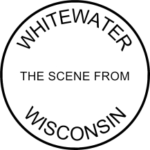 One can be a critic of newspapers (for their low quality and high boosterism), and yet feel a sadness at their decline. There’s a notice in the Janesville Gazette about downsizing of the daily print edition. See Objective: Preserve local journalism in the face of rising costs.
One can be a critic of newspapers (for their low quality and high boosterism), and yet feel a sadness at their decline. There’s a notice in the Janesville Gazette about downsizing of the daily print edition. See Objective: Preserve local journalism in the face of rising costs.
Editor Sid Schwartz tells readers that the Gazette will reduce page width, eliminate some features, reduce the size of other features, and shift how advertising is distributed throughout the paper.
A few remarks:
Cost of newsprint. Schwartz notes that a tariff on newsprint has forced some of these changes. That’s only partly right: newspapers have been struggling for years. Suggesting that recent tariffs made this happen is like saying someone diagnosed as mortally ill passed away because he was hit by a bus on the way home from the hospital: it would be true that the accident killed him, but he was in critical condition beforehand.
Tariffs. The Gazette‘s publisher has backed the WISGOP for years, and any number of interventions into the marketplace to back favored businesses. In the end, all the Gazette got for that long, strange sham-capitalism trip was a lousy tariff on newsprint from a Trump-induced trade spat with Canada.
Live by encouraging government meddling in the marketplace, perish by government meddling in the marketplace.
Digital’s Not Working for Small Newspapers. If digital were making significant money for these print publishers (indeed, any money), they’d either not need to shrink print so much, or could securely shift to a predominately digital model.
It’s not working for these local papers, and they’ve no solution. They have, instead, a ride along a downward spiral.
Digital’s Not Simply Print Placed Online. In 2006, before the Great Recession, these gentlemen, and the local notables they consistently boosted, seemed on top of the world. Publishers, reporters, politicians, connected businessmen: all those the Gazette once called ‘movers and shakers.’
Digital’s failed for them because all these men did was take their insular print model and post it online. Same boosterism, pushing of bad policies from good friends, that was slowly causing print readers to drift away. See Shirky’s ‘Shock of Inclusion.’
In a small town like Whitewater, not one of the prominent political leaders from 2006 – for city, school district, or university positions – is still in office. All that newsprint on behalf of those leaders – all those website accolades – made not a difference.
There was nothing visionary about taking fawning newspaper content and transforming it into fawning digital content.
That’s the message for digital: you can’t imitate declining print to become thriving digital.
Print Circulation. I know of no daily print newspaper in the state – not one – that has seen an increase in print circulation from 2006 to 2018. There may be one, but if so, it’s not a Whitewater-area newspaper. If any print publication’s advertising manager is telling prospective customers otherwise, they’d best ask for a detailed circulation audit.
Journalism. I’m not a journalist, reporter, or J-school guy. I’m a blogger. Not more, but not less. Pamphleteers helped shape political, artistic, and religious thought in America’s earliest days, and the web has revived that tradition (and revived it even more powerfully).
Growing up, however, we all knew how to read, and were surrounded by books, newspapers, magazines, journals, etc. There were all sorts of good newspapers around, and in their pages one found solid reporting. Little that one sees today would, from the perspective of that earlier time, pass for journalism.
That strong, more competitive era is over. Publishers pushed low quality over high standards, and saved money by contending to readers (duping them, really) that anybody who could open a laptop was a reporter.
There are some courageous newspapers left in America, but there are not any nearby.
If many of those entrusted with professional journalism hadn’t so throughly failed this society, perhaps there wouldn’t have been as great a need for alternatives, blogging being only one among them. They have failed, however, and through their boosterism of all things powerful and connected have been part of that which paved the way to our present political crisis.
So many millions of us who would never have imagined our own small roles, who hoped only that the strength of newspapers in our youth should endure forever, will do the best we can, each in his or her way, day by day.
For additional posts on newspapers, see a newspaper category link on that topic.
